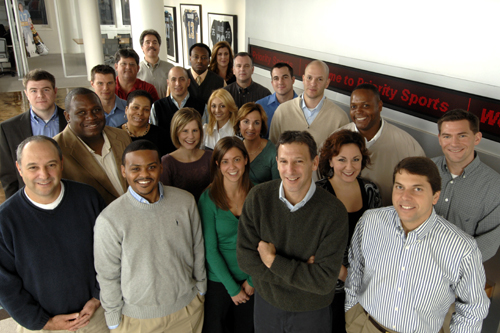
There exists an “extremely urgent and devastating player career-transitioning problem.” NFL players have a very difficult time confronting this problem says Dr. Timothy Thompson in an article on Access Athletes.
I spoke to Dr. Thompson about the potential economic and social benefits for sports agencies that determine it is worth their while to build formal career transitioning preparation programs to benefit their clients. Dr. Thompson quoted me as saying the following:
“Many companies understand the significance and importance of providing services to clientele that may not necessarily lead to a direct increase in revenue. Those companies realize that charitable measures are valuable for the end of benefiting society, but also may reap the rewards of being noticed for their efforts, which indirectly leads to an increase in profitability.
Sports agencies would be looking after their own self interests and providing a very valuable (albeit charitable) service to the individuals they represent, if they decide to spend more time, effort and energy in looking after their clients’ long term interests. It should not only be about what occurs on the field of play and in conversations with general managers, but also how athletes can transition to careers in differing disciplines once it is time to hand up the jerseys. Some agencies manage this process better than others. In today’s day-and-age, it must be an expected and demanded facet of representation.”
“The conference’s general focus and design is refreshingly simple. NFL and NFLPA representatives, financial advisors, life coaches, counselors, and other business professionals who are well thought of in their respective fields were invited to conduct career development workshops and then to get paired up with PSE clients who attended the event.”
The idea for PLAN was developed by Priority Sports football agent Deryk Gilmore, who said, in part, “As an agency we have always structured the company to make our clients a Priority. When other companies are having Super Bowl parties we had that option but just felt the best way to serve our clients was to structure a program to help them prepare for the future.” PLAN has been in place for roughly 3 years, with the intention to keep it going for the foreseeable future.
Dr. Thompson’s article includes testimonials from Priority Sports clients espousing the platform and championing its many benefits.
Will other agencies create similar programs and at least attempt to mimic the success that Priority Sports has had to-date with its PLAN? Agencies are not expected to develop, plan and support such charitable initiatives, but it may not be long until many athletes demand it.
